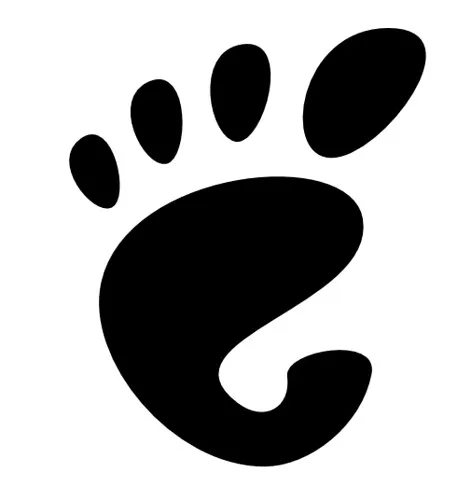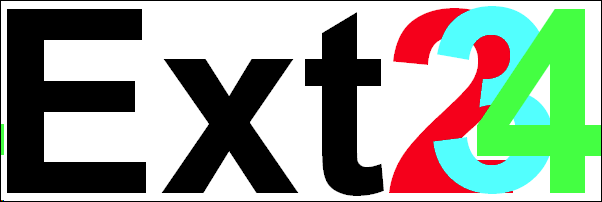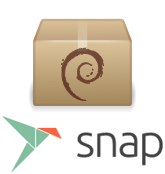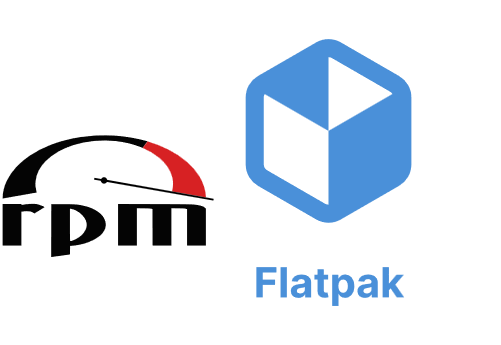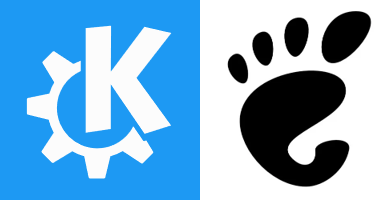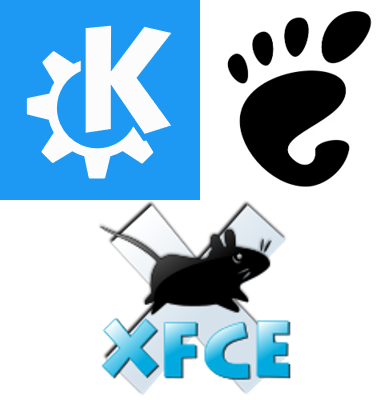|
 |
 |
 |
 |
 |
 |
 |
 |
 |
 |
 |
 |
 |
 |
 |
 |
 |
| Development & Background |
| | | | | | | | | | | | |
| Based on... |
Independent |
Debian |
Independent |
openSUSE
(soft fork) |
Independent |
Fedora
(soft fork) |
Independent |
Independent (forked from Mandriva) |
Independent (forked from Mandriva) |
Independent |
Independent |
Independent |
Independent |
Independent |
Independent |
Independent |
Independent |
| Initial release |
1993 |
2004 |
1994 (as
S.u.S.E.) |
1994 (as
S.u.S.E.) |
1995 (as
Red Hat) |
1995 (as
Red Hat) |
1998 (as
Mandrake) |
2010 |
2003 |
2002 |
1993 |
2002 |
2005 |
2008 |
2003 |
2013 |
2015 |
| Community-driven or Corporate |
Community |
Corporate (Canonical) |
Community, with corporate backing (SUSE) |
Corporate (SUSE) |
Community, with corporate backing (IBM) |
Corporate (IBM) |
Community |
Community |
Community |
Community |
Community |
Community |
Community |
Community |
Community |
Community |
Community |
| Price |
Free |
Free |
Free |
Paid |
Free |
Paid, free subscription for developers |
Free |
Free |
Free |
Free |
Free |
Free |
Free |
Free |
Free |
Free |
Free |
| Freedom & adherence to GNU GPL |
Free |
Free |
Free |
Free |
Free |
IBM does not allow sharing of source codeWhile IBM makes the source code available to subscribers as required by the GNU GPL, they reserve the right to cancel the subscriptions and therefore also further software updates from clients who share the source code with third parties. This clearly is a violation of the spirit and possibly even wording of the GNU GPL, as it essentially means you can only share the source code once before IBM cancels your subscription. |
Free |
Free |
Free |
Free |
Free |
Free |
Free |
Free |
Free |
Free |
Free |
| | | | | | | | | | | | |
| Philosophy |
| | | | Work-
station | Atomic Desktop |
| | | | | | | | |
| Primarily source-based vs binary packages |
Binary
|
Binary |
Binary |
Binary |
Binary |
Binary |
Binary |
Binary |
Binary |
Binary |
Binary |
Hybrid |
Binary |
Hybrid |
Hybrid |
Source-based |
Binary |
| Immutable or traditional? |
Traditional |
Traditional |
| Traditional | Immutable snapshot-based |
|
Traditional |
| Traditional | Immutable image-based |
|
Traditional |
Traditional |
Traditional |
Traditional |
Traditional |
Traditional |
Traditional |
Traditional |
Traditional |
Immutable declarative |
Immutable declarative |
Traditional |
| Fully reproducible system? |
In progress
|
No |
In progress |
No |
In progress |
No |
No |
No |
No |
In progress |
No |
No |
In progress |
No |
Yes |
Yes |
No |
| Only allows free software in repos? |
No (despite such policy there is a non-free repo) |
No |
No |
No |
No (despite such policy there is a non-free repo) |
No |
No, installation even includes non-free apps |
No |
No |
No |
No |
No |
No |
| | | | | | | | | | | | |
| Release schedule & Reliability |
| | | | Work-
station | Atomic Desktop |
| | | | | | | | |
| Release model |
Fixed |
Fixed |
Fixed |
Fixed |
Fixed |
Fixed |
Fixed |
Fixed |
Hybrid |
| LTS option (>5 yrs) |
Yes (5 years) |
Yes (15 years) |
No |
Yes (up to 19 years) |
No |
Yes (13-15 years) |
No |
No |
No |
No |
Yes (no fixed EOL date) |
No |
No |
No |
No |
No |
No |
| Ability to roll back updates? |
No |
No |
snapper rollback |
snapper rollback |
|
No |
No |
No |
No |
No |
No |
No |
No |
No |
nixos-rebuild switch |
guix system roll-back |
eopkg history |
| | | | | | | | | | | | |
| CPU compatibility |
| | | | | | | | | | | | |
| amd64 (64-bit AMD/Intel) |
Yes |
Yes |
Yes |
Yes |
Yes |
Yes |
Yes |
Yes |
Yes |
Yes |
Yes |
Yes |
Yes |
Yes |
Yes |
Yes |
Yes |
| aarch64 (64-bit ARM) |
Yes |
Server image |
Yes |
Server image |
Yes |
Yes |
Yes |
No |
No |
No |
Yes |
Yes |
Yes |
Yes |
Yes |
No |
No |
| ppc64le (IBM POWER9/10) |
Yes |
Server image |
Server image |
Server image |
| Yes | Nodropped from Fedora 42 onwards |
|
Yes |
No |
No |
No |
No |
No |
Yes |
Yes |
No |
No |
No |
No |
| s390x (IBM Z) |
Yes |
Server image |
Server image |
Server image |
Server image |
Yes |
No |
No |
No |
No |
No |
Yes |
Yes |
No |
No |
No |
No |
| riscv64 (RISC-V) |
Yes |
Server image |
Experimental |
No |
Experimental |
No |
Experimental |
No |
No |
No |
No |
Yes |
Yes |
No |
No |
No |
No |
| i686 (legacy 32-bit Intel/AMD) |
No |
No |
| YesTumbleweed only, Leap 16 dropped support | No |
|
No |
No |
No |
No |
Yes |
No |
No |
Yes |
Yes |
Yes |
Yes |
Minimal image |
Yes |
No |
| | | | | | | | | | | | |
| Ease of use (default setup) |
| | | | | | | | | | | | |
| Graphical installer? |
Yes (Debian-Install) |
Yes (Subiquity) |
| Yes (Yast)Leap is using Agama since Leap 16, Tumbleweed is expected to switch to Agama in the future | Yes
(Tik/ Agama)Aeon uses Tik, Kalpa uses Agama but might switch to Tik in the future |
|
Yes (Agama) |
Yes (Anaconda) |
Yes (Anaconda) |
Yes (Calamares) |
Yes (DrakX) |
Yes (DrakX) |
Text-based (archinstall) |
Test-based (Slackware Setup) |
No, manual install |
Text-based (setup-alpine) |
Text-based (void-installer) |
Yes (Calamares) |
Text-based (Guix installer) |
Yes (Calamares) |
Desktop environment by default
(or offered during installation)? |
Yes |
Yes |
Yes |
Yes |
Yes |
Yes |
Yes |
Yes |
Yes |
Yes (archinstall) |
Yes |
No, needs to be done post-install |
No, needs to be done post-install |
Only if installing from Xfce live image |
Yes |
Yes |
Yes |
| GUI for advanced system administration? |
No |
Limited (e.g. driver manager) |
| Yes (Yast)Tumbleweed only. Both Tumbleweed and Leap also use Myrlyn for package and repo management. | No |
|
Yes (Cockpitweb UI) |
No |
Yes (Cockpitweb UI) |
Yes (Control Center) |
Yes (Control Center) |
Yes (Control Center) |
No |
No |
No |
No |
No |
No |
No |
Limited (e.g. driver manager) |
Graphical updating of packages
and system upgrades? |
Updates only, not upgrades to next release |
Yes |
Yes |
Updates only, not upgrades to next release |
Yes |
Updates only, not upgrades to next release |
Yes |
Yes |
Yes |
No |
No |
No |
No |
No |
No |
No |
Yes |
| Offers to install proprietary codecs? |
No |
Yes |
No |
No |
No |
No |
Yes |
Yes |
Installed by default |
No |
No |
No |
No |
No |
No |
No |
Installed by default |
| | | | | | | | | | | | |
| Defaults |
| | | | | | | | | | | | |
| Default browser |
Firefox |
Firefox |
Firefox |
Firefox |
Firefox |
Firefox |
Chromium |
Firefox |
Firefox |
- |
Firefox |
- |
- |
- |
Firefox |
- |
Firefox |
| Default file system |
ext4 |
ext4 |
btrfs |
btrfs |
btrfs |
xfs |
ext4 |
ext4 |
ext4 |
no default |
no default |
no default |
ext4 |
no default |
ext4 |
ext4 |
ext4 |
| Default swap approach |
Swap partition |
Swap file |
| Swap part. | ZRAMAeon only, Kalpa has no swap but this might change in the future |
|
Swap partition |
ZRAM |
Swap partition |
ZRAM |
Swap partition |
Swap partition |
ZRAM (archinstall) |
no default |
no default |
Swap partition |
no default |
No swap |
No swap |
ZRAM |
| init system |
systemd |
systemd |
systemd |
systemd |
systemd |
systemd |
systemd |
systemd |
SysV init |
systemd |
SysV init |
OpenRC |
OpenRC |
systemd |
systemd |
| Core utilities |
GNU |
uutils |
GNU |
GNU |
GNU |
GNU |
GNU |
GNU |
GNU |
GNU |
GNU |
GNU |
Busybox |
GNU |
GNU |
GNU |
GNU |
| Default C library |
glibc |
glibc |
glibc |
glibc |
glibc |
glibc |
glibc |
glibc |
glibc |
glibc |
glibc |
glibc |
musl |
Choice of glibc or musl |
glibc |
glibc |
glibc |
| Default shell |
bash |
bash |
bash |
bash |
bash |
bash |
bash |
bash |
bash |
bash |
bash |
bash |
ash |
bash |
bash |
bash |
bash |
| Default privilege escalation tool |
suIf no root password is entered during the installation, the root account is locked and su can't be used; Debian will set up sudo instead. |
sudo-rsBy default, the root account is locked and su can't be used |
sudo and su |
sudo and su |
sudoBy default, the root account is locked and su can't be used |
sudo and su |
sudoBy default, the root account is locked and su can't be used |
su |
su |
su |
su |
su |
sudoas is recommended by Alpine (with sudo being downgraded to the community repo), but it not installed by default |
sudo and su |
sudo and su |
sudo and su |
sudoBy default, the root account is locked and su can't be used |
| Default/recommended bootloader (x86_64) |
grub |
grub |
grub |
grub |
grub |
grub |
grub |
grub |
grub |
grub |
LILO |
grub |
syslinux (BIOS) grub (UEFI) |
grub |
grub |
grub |
grub |
| Compiler used |
gcc |
gcc |
gcc |
gcc |
gcc |
gcc |
clang |
gcc |
gcc |
gcc |
gcc |
gcc |
gcc |
gcc |
gcc |
gcc |
gcc |
Default Linux kernel used "vanilla" = using the upstream kernel (from kernel.org) with no or minimal changes
"customized" = varying degrees of patching (security backports, hardening, hardware support, branding, enterprise features) applied to the upstream Linux kernel
"linux-libre" refers to a modified version of the kernel released by the Free Software Foundation that contains no binary blobs, obfuscated code, or code released under proprietary licenses.
|
customized |
customized |
customized |
customized |
customized |
customized |
customized |
customized |
customized |
vanilla |
vanilla |
vanilla |
vanilla |
vanilla |
vanilla |
linux-libre |
customized |
| | | | | | | | | | | | |
| Supported desktops: |
| | | | Work-
station | Atomic Desktop |
| | | | | | | | |
| KDE Plasma |
Option during installation |
Kubuntu |
| Option d. inst. | KalpaStill experimental |
|
In Package Hub |
|
In EPEL |
Default |
Pre-selected choiceAlso available as Live Image |
Plasma
Edition |
Option during installationwith `archinstall` |
Default |
In repo |
Available via setup-desktop |
In repo |
Option during installation |
Option during installation |
Plasma
Edition |
| GNOME |
Pre-selected choice |
Default |
| Option d. inst. | AeonStill experimental |
|
Default |
|
Default |
GNOME Spin |
Option during installationAlso available as Live Image |
No |
Option during installationwith `archinstall` |
In Slackbuilds |
In repo |
Available via setup-desktop |
In repo |
Pre-selected choice |
Option during installation |
GNOME Edition |
| Xfce |
Option during installation |
Xubuntu |
|
In Package Hub |
|
In EPEL |
In repo |
Available as Live Image |
Xfce Edition |
Option during installationwith `archinstall` |
Option during installation |
In repo |
Available via setup-desktop |
Installable Live Image |
Option during installation |
Option during installation |
Xfce Edition |
| MATE |
Option during installation |
Ubuntu MATE |
|
In Package Hub |
|
In EPEL |
In repo |
In repo |
MATE Edition |
Option during installationwith `archinstall` |
In Slackbuilds |
In repo |
Available via setup-desktop |
In repo |
Option during installation |
Option during installation |
In repo |
| LXQt |
Option during installation |
Lubuntu |
|
In Package Hub |
|
No |
LXQt Spin |
In repo |
In repo |
Option during installationwith `archinstall` |
In Slackbuilds |
In repo |
In repo |
In repo |
Option during installation |
In repo |
No |
| Cinnamon |
Option during installation |
Ubuntu Cinnamon |
|
In Package Hub |
|
In EPEL |
In repo |
In repo |
In repo |
Option during installationwith `archinstall` |
No |
In repo |
No |
In repo |
Option during installation |
No |
No |
| COSMIC |
No |
No |
|
No |
|
<via Fedora COPR |
In repo |
No |
No |
Option during installationwith `archinstall` |
3rd-party repo |
3rd-party overlay |
In repo |
No |
In repo |
No |
No |
| Budgie |
In repo |
Ubuntu Budgie |
|
In Package Hub |
|
No |
In repo |
No |
No |
Option during installationwith `archinstall` |
In Slackbuilds |
No |
No |
In repo |
In repo |
No |
Budgie Edition |
| Unity |
No |
Ubuntu Unity |
No |
No |
No |
No |
No |
No |
No |
3rd-party repo |
No |
3rd-party overlay |
No |
No |
No |
No |
No |
| CDE |
No |
No |
No |
No |
No |
No |
No |
No |
No |
In AUR
|
In Slackbuilds |
No |
No |
No |
In repo |
No |
No |
| | | | | | | | | | | | |
| Package management |
| | | | Work-
station | Atomic Desktop |
| | | | | | | | |
| Native binary package format |
DEB |
DEB |
RPM |
RPM |
RPM |
RPM |
RPM |
RPM |
RPM |
PKG.TAR.ZST |
TXZ |
GPKG.TAR |
APK |
XBPS |
NAR.XZ (Nix) |
NAR.XZ (Guix) |
EOPKG |
| Main package manager |
apt |
apt |
| zypper | transactional-update |
|
zypper |
|
dnf |
dnf |
urpmi |
apt-rpm |
pacman |
slackpkg |
portage |
apk |
xbps |
Nix |
Guix |
eopkg |
| Supported "universal" package formats: | | | | | | | | | | | | | |
| Flatpak |
In repo |
In repo |
Preinstalled |
In repo |
Preinstalled |
In repo |
Preinstalled |
Preinstalled |
In repo |
In repo |
In Slackbuilds |
In repo |
In repo |
In repo |
In repo |
In repo |
In repo |
| Snap |
In repo |
Preinstalled |
|
No |
|
In EPEL |
No |
No |
No |
In AUR |
No |
In repo |
No |
No |
No |
No |
In repo |
| AppImage |
Can workMany AppImages require installation of libfuse2 to run |
Can workMany AppImages require installation of libfuse2 to run |
Can workMany AppImages require installation of libfuse2 to run | NoSome AppImages might run, but most will fail due to missing libfuse2 |
|
Can workMany AppImages require installation of libfuse2 to run |
Can workMany AppImages require installation of libfuse2 to run | NoSome AppImages might run, but most will fail due to missing libfuse2 |
|
Can workMany AppImages require installation of libfuse2 to run |
Can workMany AppImages require installation of libfuse2 to run |
Can workMany AppImages require installation of libfuse2 to run |
Should worklibfuse2 is installed by default |
Can workMany AppImages require installation of libfuse2 to run |
Should worklibfuse2 is installed by default |
Can workMany AppImages require installation of libfuse2 to run |
Most likely not workingdue to missing glibc |
Should work with glibcbut not musl; also most AppImages require installation of libfuse2 |
Should work (appimage-run) |
Can workMany AppImages require installation of libfuse2 to run (--emulate-fhsguix shell --container --emulate-fhs) |
Should worklibfuse2 is installed by default |
| Distrobox preinstalled?Can run any other distro in a container and install packages in those distros, giving any distro compatibility with e.g. Ubuntu DEBs or Fedora RPMs or Arch's AUR |
|
|
|
|
| Yes (toolbx)similar to distrobox but lacking some features |
|
|
|
|
|
|
|
|
|
|
|
|
|
|
Other cross-platform package managers such as `nix`, `guix`, `brew`, `pkgsrc` or `0install` as well as as OCI containers (`docker`/`podman`) are widely compatible across Linux distributions. |
| | | | | | | | | | | | |
| Security |
| | | | | | | | | | | | |
| Full-disk encryption option in installer |
Yes |
Yes |
| Yes | YesMandatory for Aeon, see here, but not (yet) for Kalpa |
|
Yes |
Yes |
Yes |
Yes |
Can encrypt individual partitions when selecting "custom partitioning" |
Can encrypt individual partitions when selecting "custom partitioning" |
Yes (archinstall) |
No, manual setup using cryptsetup |
No, manual setup using cryptsetup |
Yes |
No, manual setup using cryptsetup |
Yes |
Yes |
Yes |
| Out-of-the-box support for Secure Boot |
NoWhile Debian does support Secure Boot, you'll have to enroll your own MOK certificate and sign the kernel yourself. That also means you cannot install Debian without first disabling Secure Boot. On the other hand, Ubuntu, Fedora/RHEL and OpenSUSE/SLE offer Secure Boot working out of the box with most x86 systems without any fiddling. |
Yes |
Yes |
Yes |
Yes |
Yes |
No |
No |
No |
No |
No |
No |
No |
No |
No |
No |
Yes |
| Kernel security module set up by default? |
AppArmor |
AppArmor |
SELinux |
SELinux |
SELinux |
SELinux |
No |
No |
No |
No |
No |
No |
No |
No |
No |
No |
AppArmor |

















